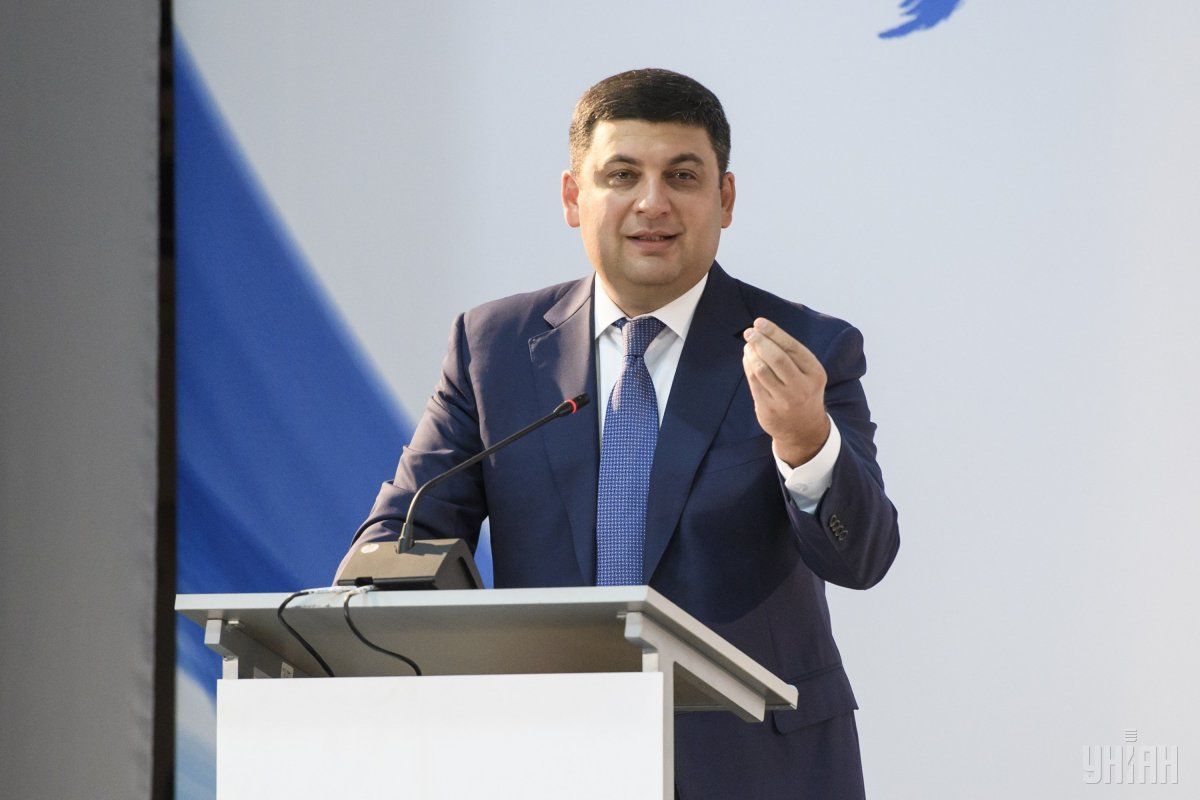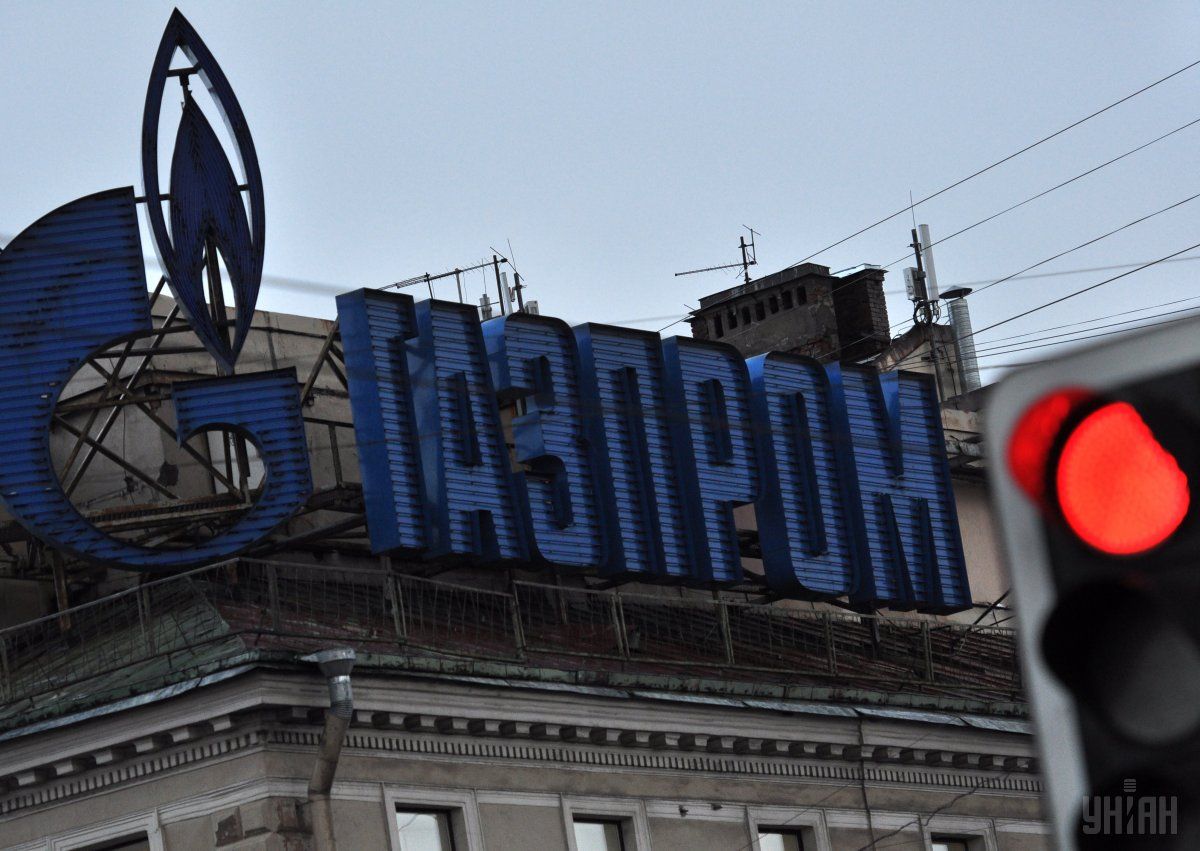
Week’s balance: Economy sees growth, Groysman vows privatization, and Gazprom fights off fines
The Ministry of Economic Development has reported growth of the national economy, Prime Minister Groysman promised to restart privatization despite the fact that a new State Property Fund chief has not yet been appointed, while Russian energy giant Gazprom easily refuted in Ukrainian courts earlier imposed obligations to pay UAH 80 million worth of fines for the violation of anti-trust legislation - these are the key economic news of the outgoing week.
In the first half of the year, the Ukrainian economy showed a 2.5% growth, as estimated by the Ministry of Economic Development and Trade of Ukraine. According to the ministry’s experts, it was increased exports, primarily of agricultural and steelmaking products, and the revival of industrial production, which contributed to the positive dynamics in the national economy. At the same time, we should not forget that the growth is only noticeable against the background of a low comparative base for the same period in 2016.
In any case, it's too early to rejoice. The economy ministry believes that in the next quarter, economic growth will be partially offset by a more restrained dynamic of the service sector.
As for industrial output, it should reach 1% compared to the same period last year, which is more than a modest result, frankly speaking. The main constraints remain the same - the ongoing military conflict in eastern Ukraine and unfavorable prices in commodity markets.
Despite this, the results of individual industries, like food and textile production, are rather encouraging.
The state treasury has already felt the effects of the GDP growth (albeit a small one). The National Bank of Ukraine reported that the national budget in January-June 2017 was executed with a surplus of UAH 29.035 billion against a UAH 35 billion deficit in the same period last year. For Ukraine, the issue of filling up the coffers remains extremely acute, including because the country’s huge debt does not seem to be going to decrease anytime soon. The Ministry of Finance reported that the state and state-guaranteed debt of Ukraine in June 2017 increased by 0.4%, to $75.01 billion.
As for an equally important indicator, the inflation, the economy ministry hastened to reassure that, despite the accelerated price rise in June, the inflation forecast for 2017 is retained at an earlier projected at 11.2%. Although the ministry did not rule out a possible increase in consumer prices, naming risks that could lead to a noticeable increase in inflation in the coming months. The ministry says, inflation processes can be caused by a possible resumption of devaluation trends, a sharp rise in prices in the world market, as well as a more substantial and rapid transfer of production costs onto consumer prices.
Privatization: a new start

The subject of state assets sales is once again becoming the backbone of the government's PR efforts aimed at attracting investors. Prime Minister Volodymyr Groysman vows to restart as early as in autumn the process of privatization, which has been stalled in recent years for various reasons. Moreover, the fact that a new head of the State Property Fund has not been appointed yet should not become an obstacle to privatization, Groysman said.
It should be noted that the topic of privatization is on top agenda today including due to the fact that Ukraine’s key investor, the IMF, has put forward a strict condition: if privatization remains stalled, it is unlikely that the next bailout tranches will be allocated.
That is why the Cabinet of Ministers has pledged to sell the Odesa Portside Chemical Plant as well as the shares in eight regional electricity suppliers (‘oblenergos’).
This week, the State Property Fund announced that on August 15-18 it will hold auctions for the sale of shares in oblenergos. 25% of the state-owned shares are planned to be put out on sale up in each of the eight following companies: Odesaoblenergo, Donetskoblenergo, Donbasenergo, Sumyoblenergo, DTEK Dniproenergo, DTEK Dniprooblenergo, DTEK Zakhidenergo, and Kyivenergo.
According to the Cabinet of Ministers, the initial value of these assets ranges from UAH 143.8 million (Donetskoblenergo) to UAH 759.6 million (Kyivenergo).
Deputy head of the State Property Fund of Ukraine Yuriy Nikitin believes it is necessary to sell blocking shares of eight oblenergos, since these packages of shares bring no dividends to the state.
"While owning these packages, the state has neither proper corporate control nor dividends ... The total initial cost of these packages is UAH 4.1 billion! The state will never see such dividends otherwise, especially since it does not have those billions to invest in modernization, which these companies need as air," Nikitin said.
This privatization effort can actually be a successful one, since the National Energy and Utility Regulation Commission intends to introduce a stimulating RAB-tariff.
"Investors' interest is also fueled by the long-awaited RAB- which will give them an understanding of how and when they will be able to return their investments. According to our information, by the end of August, all necessary regulatory framework for launching this tariff could be approved," Nikitin said, adding that several portfolio shareholders have already applied to the SPFU, showing their interest in buying shares in oblenergos.
However, in order to move the privatization from the dead point, it is necessary to modernize the existing privatization legislation. But it’s hard to say whether the parliament will have enough votes to this end.
Struggle for Gazprom’s dividends

Not so long ago, Justice Minister Pavlo Petrenko pleased the public with the news that more than UAH 80 million had been collected from Gazprom in favor of Ukraine as part of the execution of the court decision to recover UAH 172 billion from the Russian gas monopoly. However, on Tuesday the Kyiv Economic Court of Appeal overturned the decision of the Kyiv Economic Court, which satisfied the application of the State Executive Service to write off nearly UAH 80 million worth of dividends from the account of Gaztransit, the Ukrainian subsidiary of the Russian gas monopoly. The case is now being returned to the Economic Court of Kyiv.
The appellate instance explained its ruling by stating that the collection of dividends from Gaztransit's net profits violated the rights of Gaztransit's shareholders, as the funds at the time of collection belonged to Gaztransit, not to Gazprom.
It should be noted that there are not so many assets of Gazprom in Ukraine, and UAH 80 million is a drop in the sea against UAH 172 billion, which the Russian gas monopoly owes in fines. Therefore, the issue remains acute of finding a mechanism for enforcing the Ukrainian courts’ decisions in other countries, in order to recover fines from a Russian company. In this regard, the minister of justice said that his experts had been working on this issue, seeking cooperation with their foreign counterparts.
Meanwhile, the London High Court satisfied Ukraine's petition to fully suspend the execution of decision on the $3 billion "Yanukovych loan" until Ukraine’s appeal in the English Court of Appeal, is considered (that will be no earlier than in 2018).
Oleksandr Kunytskiy

